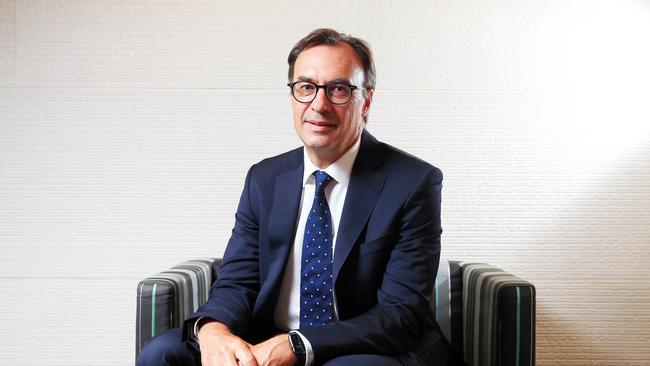Amcil listed investment fund dumps shares, pays unscheduled dividend in bid to bear ALP move
Amcil has become the latest fund to dump shares in a bid to defend the value of franking credits ahead of a Federal poll.

The $235 million Amcil listed investment fund has become the latest equities investor to dump its shares in BHP and pay an unscheduled dividend to its own shareholders to beat the stripping of cash refunds for excess dividend imputation credits by an incoming ALP government.
Over the last fortnight Mirrabooka and Australian Foundation Investment Co, which is the nation’s largest listed investment company with $7 billion of funds, have also showered their own shareholders with special dividends and extra dividend payments to get the money into the pockets of their investors before the value of franking credits are slashed by the proposed ALP policy.
AFIC revealed yesterday it had sold down more than $120m worth of shares in blue-chip miners Rio Tinto and BHP to take advantage of the rich franking credits both miners were offering in share buybacks, as the fund re-engineered its portfolio to prepare for the new ALP scheme.
A Shorten Labor Government has vowed to make the tax system fairer by closing down a concession that gives cash refunds for excess dividend imputation credits. Closing down this concession will save the budget $11.4bn over the forward estimates from 2018-19, and improve the budget bottom line by $59bn over the medium term, shadow Treasurer Chris Bowen has claimed.
With an election looming some investors are beginning to jump.
This morning Amcil, which is part of the stable that includes Mirrabooka and AFIC, announced its half-year results that included an interim dividend and a special dividend — both of which were unexpected and directly linked to the proposed ALP policy.
“Amcil’s normal practice has been to pay a dividend once a year with the full-year result to distribute all franking credits that are available at financial year end,’’ the company said this morning.
“However, given the strong increase in fully franked income in the first half from participation in the Rio Tinto and BHP off-market share buybacks, the board felt it was prudent to pay this special dividend with the interim result given the policy uncertainty surrounding the future refundability of franking credits.”
The latest results from Amcil show it sold $2.5m worth of its BHP shares or 18 per cent of its stake to get ahead of the ALP policy, assuming it won government at the next federal election.
Amcil will pay an interim dividend of 2 cents per share fully franked and a special dividend of 1.5 cents per share, both to be paid on February 22. Amcil this morning declared a December half profit of $3.66m, up 42.7 per cent.
Yesterday, Mr Bowen refused to back down on the ALP’s policy to rewrite franking credit rules and warned the current system of dividend refunds encouraged Australian investors to be overweight Australian shares which was risky.
“Investors should make economic decisions because of economic fundamentals not because of favourable tax treatment. The current system encourages people to be overweight Aussie shares meaning they have not adequately spread their risk and may suffer significantly in a downturn because of this overweighting.”
AFIC chief executive Mark Freeman, who is also the CEO of Amcil, revealed yesterday the fund had sold down almost half its stake in Rio Tinto and 3 per cent of its holding in BHP to pass on the franking credits to its shareholders as soon as possible.
He told The Australian that the feedback from his 130,000 shareholders, who were mostly elderly retirees, that the ALP proposed changes to franking credits would hurt them financially.
“This is going to hurt a lot of people who are saying ‘I’m not rich, I’m not wealthy and why am I being forced to go on a higher tax bracket through this?’,’’ Australian Foundation Investment Co chief executive Mark Freeman said.
“The consistent feedback we have had from our shareholders is this is a significant issue for them, they are saying ‘help us please’ because they don’t have a voice and most of them are elderly retirees,” he said.
“People feel hurt that they are being classified as rich and wealthy and don’t understand why they are being forced into a higher tax bracket because they are not getting the credit back. Why them?”






To join the conversation, please log in. Don't have an account? Register
Join the conversation, you are commenting as Logout